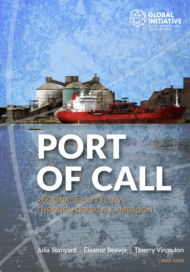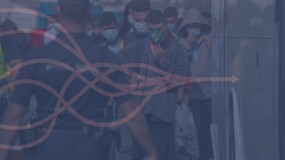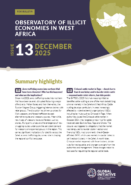Posted on 08 May 2024
Douala port, in Cameroon, serves as a vital gateway for international trade, facilitating the flow of goods between West and Central Africa and global markets. However, its strategic importance also makes it a prime target for criminal networks seeking to exploit vulnerabilities in port security systems.
This report delves into the complex interplay between port security reforms and illicit trade networks. From counterfeit goods to drug trafficking, Douala serves as a conduit for various illicit commodities, highlighting the need for comprehensive security measures to combat criminal activities.
Douala port has undergone significant reforms aimed at bolstering security and enhancing efficiency. However, challenges persist, including corruption, inadequate infrastructure, and the need for greater coordination among stakeholders. The report examines these challenges in detail, offering insights into potential solutions.
Beyond technical and physical security measures, the report emphasizes the importance of addressing the human side of port management. Poor working conditions and vulnerabilities among port workers pose additional challenges, requiring a holistic approach to port security and management.
Drawing on international best practices and case studies, the report identifies strategic interventions to strengthen port security at Douala and beyond. From leveraging technology for enhanced surveillance to fostering collaboration between public and private sectors, these interventions aim to mitigate risks and safeguard global trade networks.




